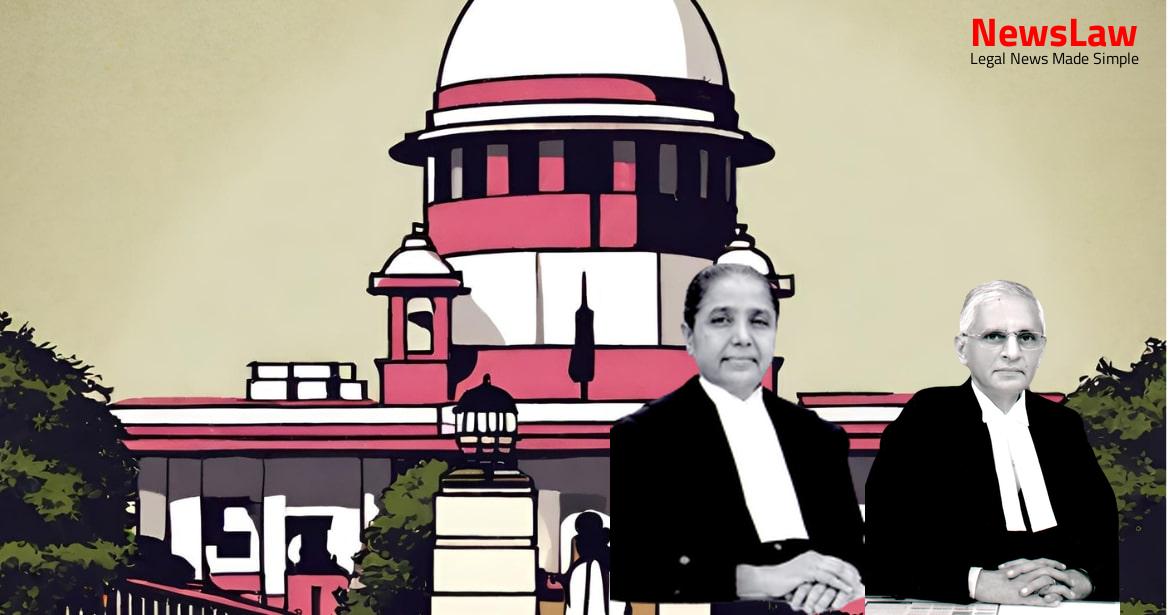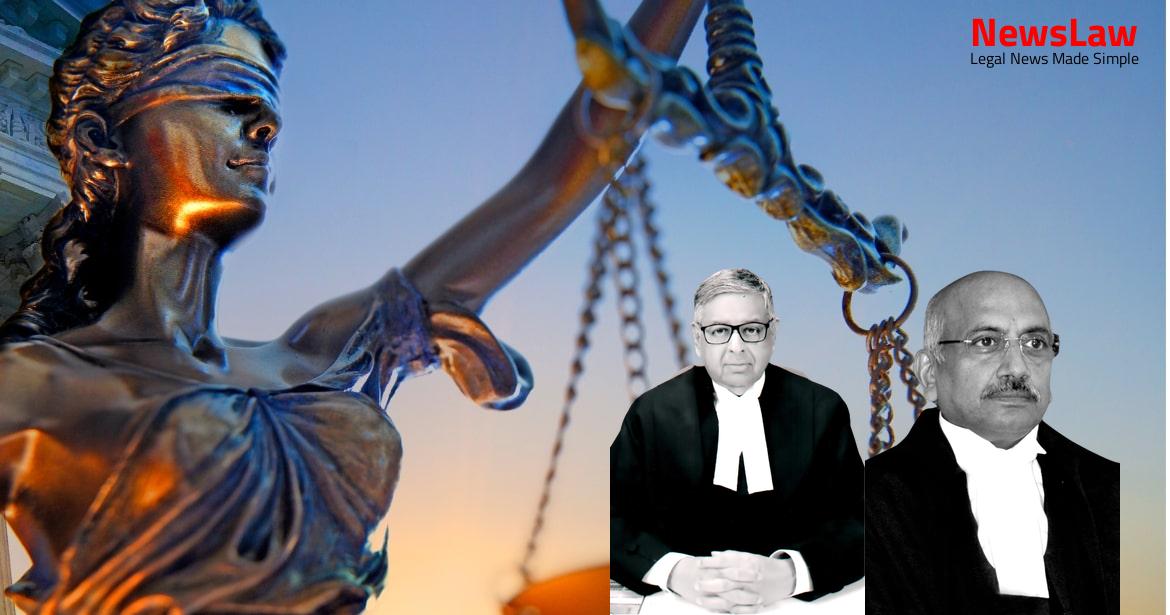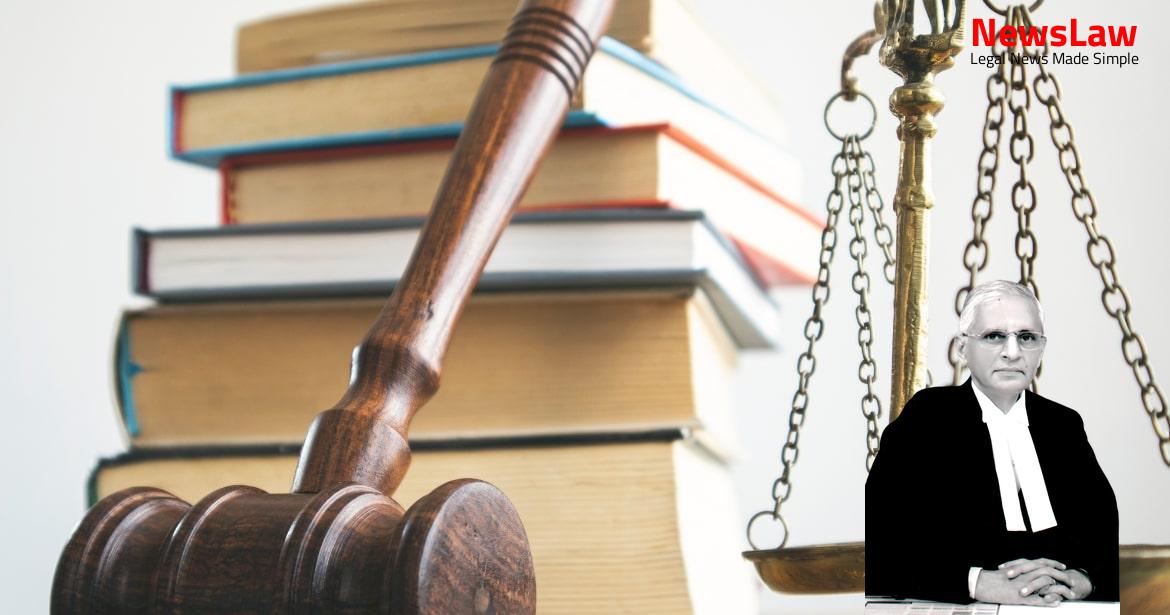In the legal case of Plaintiff v. Defendant No.2, a significant land dispute was resolved by the Supreme Court of India. The case involved a claim for possession of land through specific performance of an Agreement of Sale, with Defendant No.2 being a bonafide purchaser. The Court’s judgment has far-reaching consequences for property rights and the requirements for granting specific performance. Here’s a summary of the key points and implications of this landmark judgment.
Facts
- Plaintiff filed a suit seeking possession of land through specific performance of an Agreement of Sale.
- Defendant No.1 agreed to sell the land for Rs.1,40,000 with Rs.69,500 paid as earnest money.
- Plaintiff sought to set aside a Sale Deed dated 11.06.2004 between Defendant No.1 and Defendant No.2.
- Defendant No.2 contended that he purchased the property and is in possession.
- The appeal by Defendant No.2 was allowed by the Court with a cost of Rs.1,50,000 and leave to file a written statement.
- Defendant No.2 filed written statement and the suit proceeded, with Civil Procedure Code being dismissed as barred by Limitation.
- Defendant No.2 later filed a petition to set aside the ex parte decree with a delay, seeking condonation under Section 5 of the Limitation Act.
- The Trial Court initially decreed the suit as defendants failed to appear and contest.
- Defendant No.2’s petition to set aside the ex parte decree was under consideration.
- The Trial Court dismissed the application seeking condonation of delay on 07.08.2012.
- The defendant No.2, feeling aggrieved, filed Civil Revision No. 5332/2012 (O&M) before the High Court of Punjab and Haryana at Chandigarh.
- The High Court, in the Revision Petition filed under Section 115 of CPC and Article 227 of the Constitution of India, upheld the decision of the Trial Court and dismissed the Revision Petition on 12.09.2012.
Also Read: Jagdishchandra v. Joint Charity Commissioner & Ors.
Arguments
- The appellant contends that Defendant No.2 is a bonafide purchaser without notice of any alleged agreement between the plaintiff and Defendant No.1.
- The Sale Deed was registered and Defendant No.2 has been in possession of the property since 11.06.2004, making considerable improvements and residing in the constructed house.
- Ordering specific performance at this point would cause greater hardship to Defendant No.2.
- The plaintiff’s alternate prayer for refund of earnest money and damages could serve the ends of justice.
- The plaintiff failed to effectively prove readiness and willingness, despite Defendant No.1 not contesting the suit.
- Defendant No.2 has already spent a significant amount for securing leave to file a written statement and defend the suit.
- Plaintiff was ready to complete the transaction on the stipulated date but Defendant did not turn up at the Sub-Registrar’s office.
- Defendant No.1 executed a Sale Deed in favor of Defendant No.2 before the stipulated date, allegedly to defeat Plaintiff’s rights.
- Plaintiff had paid a total of Rs.69,500/- as earnest money for the property.
- Defendant No.2 denied the execution of the agreement and the receipt of earnest money.
- Plaintiff contends that the property is highly valuable and should benefit from its appreciation.
- The appeal is argued to be liable for dismissal as all three Courts have held against the defendants in a concurrent manner.
Also Read: Legal Analysis: K.B. Lal vs. Gyanendra Pratap & Ors. – Condonation of Delay in Civil Appeal
Analysis
- The Trial Court and Lower Appellate Court concluded that readiness and willingness with possession of the sale consideration as on 15.06.2004 was not proven by the plaintiff.
- The High Court did not appropriately consider the basic requirements to grant a decree for specific performance.
- There was no evidence to prove connivance among the defendants to defeat the plaintiff’s rights.
- Defendant No.2, being a bonafide purchaser, was directed to pay Rs. 3,50,000 in full quit of all claims to the plaintiff.
- Defendant No.2 was required to pay the mentioned amount within three months with 12% interest if not paid on time.
- The plaintiff was entitled to withdraw Rs. 70,500 lying in deposit before the Trial Court.
- The Court set aside the relief of specific performance granted, modifying the judgment and decree accordingly.
- The parties were directed to bear their own costs, and pending applications were disposed of.
Also Read: Liability for Employee Actions in Contractual Disputes
Case Title: SUKHWINDER SINGH Vs. JAGROOP SINGH (2020 INSC 100)
Case Number: C.A. No.-000760-000760 / 2020



